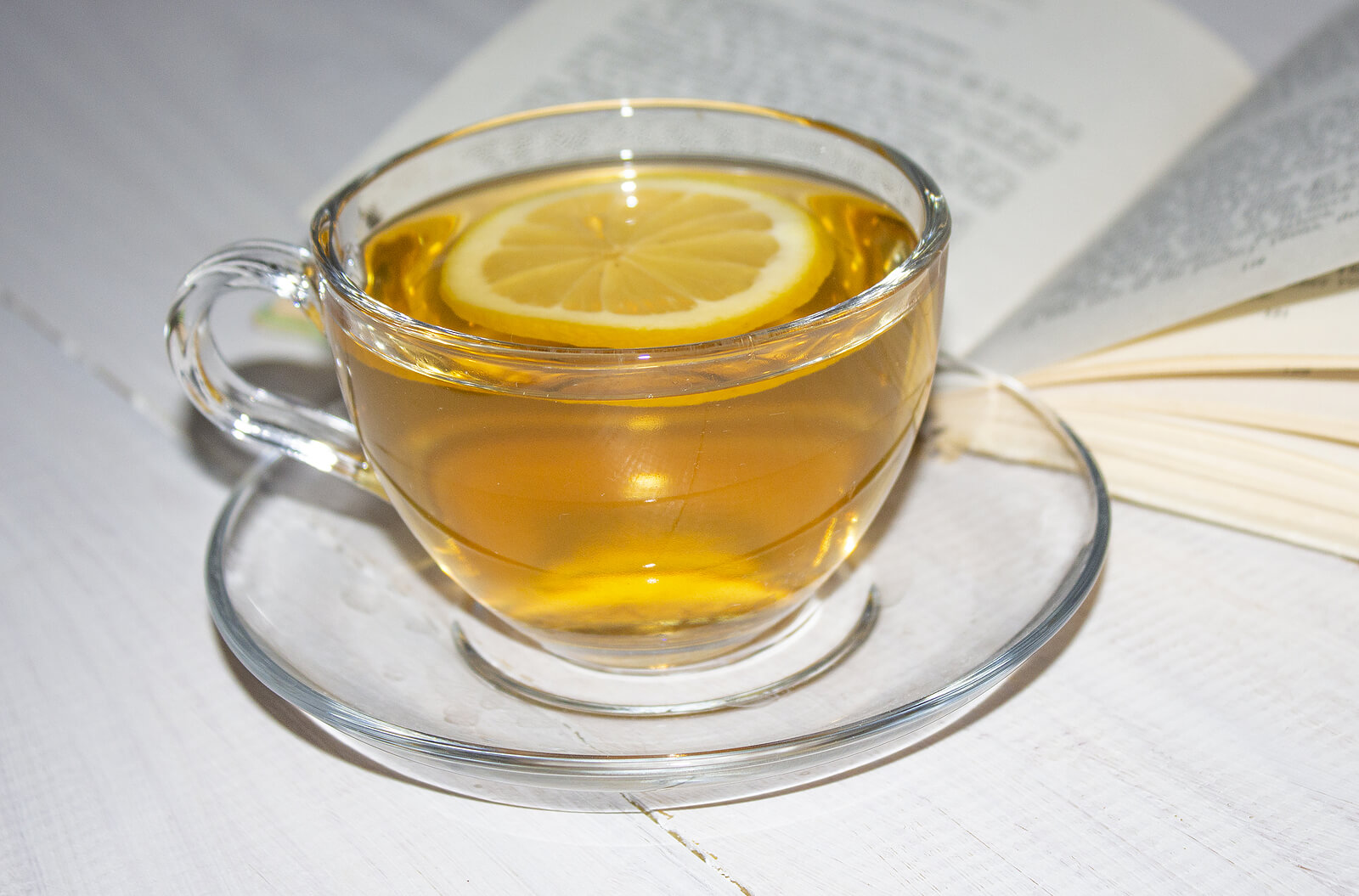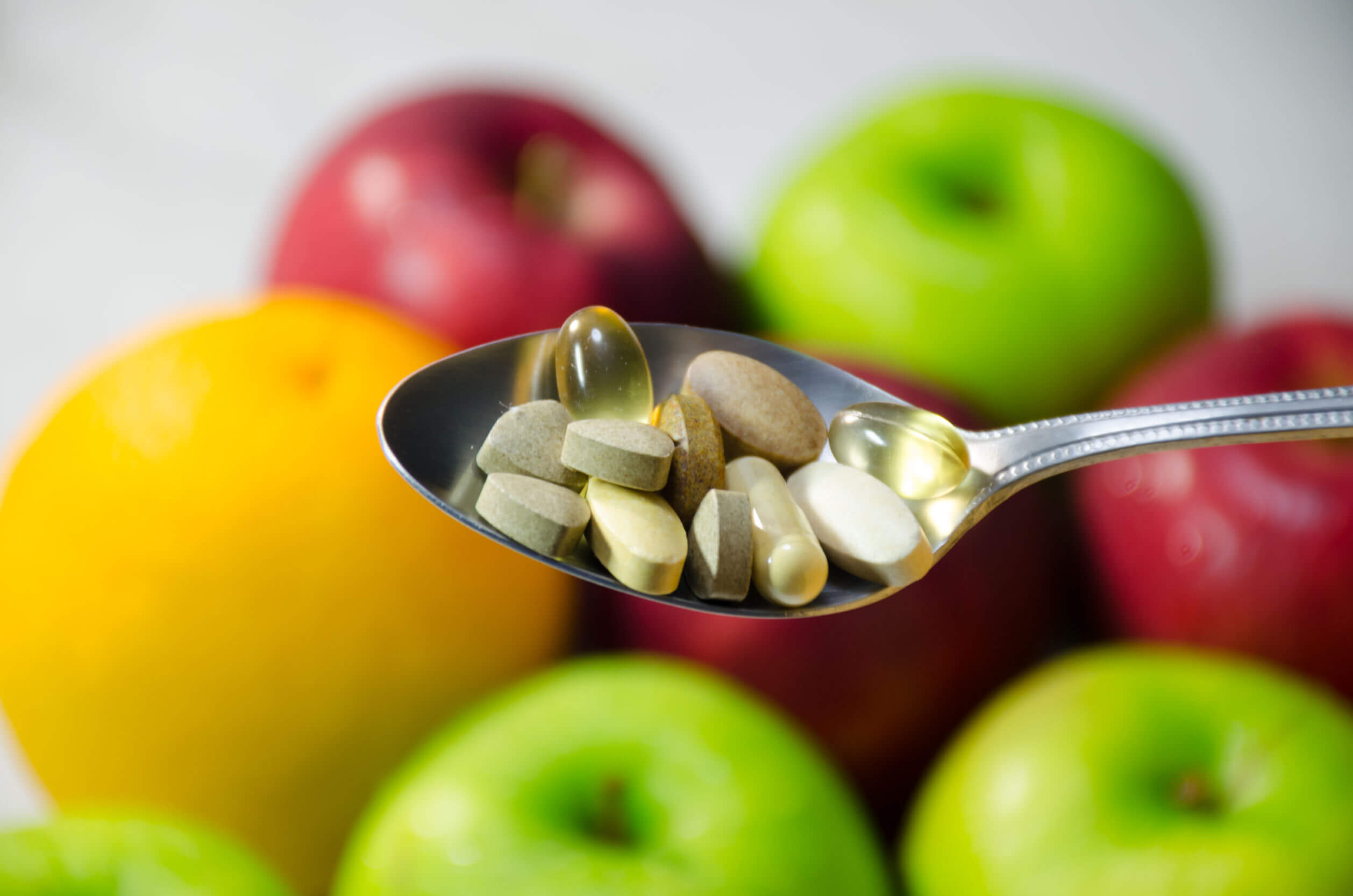Natural Remedies for Menopause

Natural remedies for menopause are an option that many women turn to at this stage of their lives. This is mainly for two reasons: to avoid resorting to a greater number of drugs, and to obtain relief from the discomfort they have and gain well-being at the same time.
When we talk about natural remedies, we’re not only referring to drinks and herbal supplements. We’ll also include some measures that – by nature – are beneficial when used as part of a healthy lifestyle. Let’s look at them in more detail below.
Green tea

Green tea is one of the most consumed natural beverages in the world. It stands out for its diuretic properties, but also for its antioxidant elements, which are what provide most of its benefits. According to research published in recent years, these properties would contribute to better memory and general physical health.
In a study published in the journal Nature, the authors explain that there’s a relationship between green tea consumption before menopause and higher bone density in Asian women.
However, they were unable to provide exact data on tea concentration and quantity. Because of this, they consider that the benefits could be obtained regardless of these factors.
- Consuming green tea within a healthy lifestyle is believed to help combat fluid retention and promote healthy skin.
Maca root
Although there are still data to be verified in relation to its effectiveness, there’s evidence that points to maca root as one of the best natural remedies for menopause.
In fact, in a review article published in 2015, they state that: “Maca is a good antioxidant, an excellent energizer and improves growth rate and sexual desire. It also intervenes in the increase of fertility and in the amelioration of menopausal symptoms”.
Soy
According to a study published in the journal Elsevier, soy isoflavones have been shown to be effective in treating the typical symptoms of menopause, especially hot flashes. This is because they have a physiological activity similar to that of estrogen (although with less intensity).
In the same source, they explain that the adequate consumption of soy (and its derivatives) can help to relieve hot flashes, irritability, mood swings, and reduce menstrual cycle alterations. In addition to this, it can help to lessen the risk of suffering health problems such as cardiovascular disease, osteoporosis, and some cancers (breast, endometrium, prostate, and colon).
Black cohosh
According to some recent studies, black cohosh (Cimicifuga racemosa) is effective for the relief of some vasomotor symptoms of menopause, including hot flashes and sleep problems. It can be found in tablet and capsule form in herbal parapharmacies.
Oatmeal
Oatmeal is one of the best cereals from a nutritional point of view. For this reason, it’s also included in the list of natural remedies for menopause.
- Oatmeal is an excellent source of fiber, various nutrients (including calcium), and as the experts at Women’s Health Concern indicate, it has been proven to help support a healthy menopause and postmenopause.
Vitamin D, E, K, calcium, melatonin supplements

To prevent the deterioration of bone and muscle mass, many women ask their doctor if they should take advantage of vitamin D and calcium supplements (in combination or not with vitamin K). Generally, doctors will approve them, although there are cases where you must be careful using them, due to the interactions that they could cause with some drugs of continuous consumption.
The consumption of vitamin E supplements is usually linked to better skin health and fewer signs of aging on it, as confirmed by the Menopause Institute.
The Pycnogenol supplement (which is the trademark by which the product obtained from the bark of the maritime pine is known) is another option that people use. However, the experts at Medline Plus explain that there’s no data to confirm its efficacy against discomfort caused by menopause.
Melatonin supplements are recommended for women who have sleep problems. As indicated by the Menopause Institute, “the indicated dose is usually 0.5 mg (maximum of 1 mg) of prolonged-release melatonin one hour before going to sleep“. However, this may vary, depending on what your doctor considers in each case.
A healthy lifestyle: the best natural supplement
According to a study published in the journal Professional Pharmacy, other studies have shown that women often turn to alternative medicine during menopause. The most commonly taken options would be medicinal plants, soy, or phytoestrogens.
In relation to lifestyle, we can point out the 2016 Recommendations of the International Menopause Society on the health of middle-aged women and menopausal hormone therapy:
- Do moderate-intensity exercise for at least 150 minutes per week.
- Experts also recommend that you include at least a couple of sessions of resistance exercises for additional benefits.
- The practice of aerobic exercises should be adapted to the doctor’s instructions.
- Exercise improves metabolic profile, balance, muscle strength, cognition, and quality of life.
- It’s essential that you maintain a healthy diet, consuming several portions of fruit and vegetables every day. The diet should be low in salt and fat (although the use of olive oil is recommended). Fiber from food such as legumes, fish consumption (at least twice a week) are also recommended.
- The consumption of alcohol and tobacco isn’t recommended, as both increase the risk of suffering from different health problems.
- Staying mentally active and cultivating social relationships is also highly recommended for improving both mental and physical health.
- Maintaining good sleep hygiene, applying techniques that help manage stress, and cultivating hobbies, is very healthy.
Check with your doctor before using a natural remedy
As you can see, there are several natural remedies for menopause that can help your transition through this stage of life.
Remember that even if they’re natural, they aren’t necessarily beneficial in all cases. Therefore, it’s advisable to consult your doctor before starting to use them. In this way, the specialist will be able to provide you with all the necessary guidance.
Natural remedies for menopause are an option that many women turn to at this stage of their lives. This is mainly for two reasons: to avoid resorting to a greater number of drugs, and to obtain relief from the discomfort they have and gain well-being at the same time.
When we talk about natural remedies, we’re not only referring to drinks and herbal supplements. We’ll also include some measures that – by nature – are beneficial when used as part of a healthy lifestyle. Let’s look at them in more detail below.
Green tea

Green tea is one of the most consumed natural beverages in the world. It stands out for its diuretic properties, but also for its antioxidant elements, which are what provide most of its benefits. According to research published in recent years, these properties would contribute to better memory and general physical health.
In a study published in the journal Nature, the authors explain that there’s a relationship between green tea consumption before menopause and higher bone density in Asian women.
However, they were unable to provide exact data on tea concentration and quantity. Because of this, they consider that the benefits could be obtained regardless of these factors.
- Consuming green tea within a healthy lifestyle is believed to help combat fluid retention and promote healthy skin.
Maca root
Although there are still data to be verified in relation to its effectiveness, there’s evidence that points to maca root as one of the best natural remedies for menopause.
In fact, in a review article published in 2015, they state that: “Maca is a good antioxidant, an excellent energizer and improves growth rate and sexual desire. It also intervenes in the increase of fertility and in the amelioration of menopausal symptoms”.
Soy
According to a study published in the journal Elsevier, soy isoflavones have been shown to be effective in treating the typical symptoms of menopause, especially hot flashes. This is because they have a physiological activity similar to that of estrogen (although with less intensity).
In the same source, they explain that the adequate consumption of soy (and its derivatives) can help to relieve hot flashes, irritability, mood swings, and reduce menstrual cycle alterations. In addition to this, it can help to lessen the risk of suffering health problems such as cardiovascular disease, osteoporosis, and some cancers (breast, endometrium, prostate, and colon).
Black cohosh
According to some recent studies, black cohosh (Cimicifuga racemosa) is effective for the relief of some vasomotor symptoms of menopause, including hot flashes and sleep problems. It can be found in tablet and capsule form in herbal parapharmacies.
Oatmeal
Oatmeal is one of the best cereals from a nutritional point of view. For this reason, it’s also included in the list of natural remedies for menopause.
- Oatmeal is an excellent source of fiber, various nutrients (including calcium), and as the experts at Women’s Health Concern indicate, it has been proven to help support a healthy menopause and postmenopause.
Vitamin D, E, K, calcium, melatonin supplements

To prevent the deterioration of bone and muscle mass, many women ask their doctor if they should take advantage of vitamin D and calcium supplements (in combination or not with vitamin K). Generally, doctors will approve them, although there are cases where you must be careful using them, due to the interactions that they could cause with some drugs of continuous consumption.
The consumption of vitamin E supplements is usually linked to better skin health and fewer signs of aging on it, as confirmed by the Menopause Institute.
The Pycnogenol supplement (which is the trademark by which the product obtained from the bark of the maritime pine is known) is another option that people use. However, the experts at Medline Plus explain that there’s no data to confirm its efficacy against discomfort caused by menopause.
Melatonin supplements are recommended for women who have sleep problems. As indicated by the Menopause Institute, “the indicated dose is usually 0.5 mg (maximum of 1 mg) of prolonged-release melatonin one hour before going to sleep“. However, this may vary, depending on what your doctor considers in each case.
A healthy lifestyle: the best natural supplement
According to a study published in the journal Professional Pharmacy, other studies have shown that women often turn to alternative medicine during menopause. The most commonly taken options would be medicinal plants, soy, or phytoestrogens.
In relation to lifestyle, we can point out the 2016 Recommendations of the International Menopause Society on the health of middle-aged women and menopausal hormone therapy:
- Do moderate-intensity exercise for at least 150 minutes per week.
- Experts also recommend that you include at least a couple of sessions of resistance exercises for additional benefits.
- The practice of aerobic exercises should be adapted to the doctor’s instructions.
- Exercise improves metabolic profile, balance, muscle strength, cognition, and quality of life.
- It’s essential that you maintain a healthy diet, consuming several portions of fruit and vegetables every day. The diet should be low in salt and fat (although the use of olive oil is recommended). Fiber from food such as legumes, fish consumption (at least twice a week) are also recommended.
- The consumption of alcohol and tobacco isn’t recommended, as both increase the risk of suffering from different health problems.
- Staying mentally active and cultivating social relationships is also highly recommended for improving both mental and physical health.
- Maintaining good sleep hygiene, applying techniques that help manage stress, and cultivating hobbies, is very healthy.
Check with your doctor before using a natural remedy
As you can see, there are several natural remedies for menopause that can help your transition through this stage of life.
Remember that even if they’re natural, they aren’t necessarily beneficial in all cases. Therefore, it’s advisable to consult your doctor before starting to use them. In this way, the specialist will be able to provide you with all the necessary guidance.
-
Baber, R J, N Panay, A Fenton, and Correspondencia : Profesor. 2016. “Recomendaciones 2016 de La IMS Sobre Salud de La Mujer de Edad Mediana y Terapia Hormonal de La Menopausia.” CLIMACTERIC. Vol. 19. https://www.imsociety.org/wp-content/uploads/2020/08/2016-ims-hrt-health-recommendations-spanish.pdf.
- Johnson A, Roberts L, Elkins G. Complementary and Alternative Medicine for Menopause. J Evid Based Integr Med. 2019 Jan-Dec;24:2515690X19829380. doi: 10.1177/2515690X19829380. PMID: 30868921; PMCID: PMC6419242.
- Herbal medicines for menopausal symptoms. Evidence-Based Nursing 2010;13:29-33.
-
Nedrow, Anne, Jill Miller, Miranda Walker, Peggy Nygren, Ma ; Laurie, Hoyt Huffman, and Heidi D Nelson. n.d. “Complementary and Alternative Therapies for the Management of Menopause-Related Symptoms A Systematic Evidence Review.” Accessed June 12, 2021. http://www.saegre.org.ar/biblioteca/arbol_bibliografico/diciembre2006/Arch_Int_Med_2006-menop.pdf.
-
Ni, Saili, Lu Wang, Guowei Wang, Jie Lin, Yiyun Ma, Xueyin Zhao, Yuan Ru, Weifang Zheng, Xiaohui Zhang, and Shankuan Zhu. 2021. “Drinking Tea before Menopause Is Associated with Higher Bone Mineral Density in Postmenopausal Women.” European Journal of Clinical Nutrition, January, 1–11. https://doi.org/10.1038/s41430-021-00856-y.
-
Pinkerton, JoAnn. 2019. “Menopausia – Salud Femenina.” Manual MSD Versión Para Público General. 2019. https://www.msdmanuals.com/es/hogar/salud-femenina/menopausia/menopausia?query=Menopausia.
-
Sifuentes-Penagos, Gabriel, Susan León-Vásquez, and Luz María Paucar-Menacho. 2015. “Study of Maca (Lepidium Meyenii Walp.), Andean Crop with Therapeutic Properties.” https://doi.org/10.17268/sci.agropecu.2015.02.06.
-
Suárez Sanz, Susana. 2003. “Soja y Menopausia. Nuevas Aportaciones .” Farmacia Profesional. https://www.elsevier.es/es-revista-farmacia-profesional-3-articulo-soja-menopausia-nuevas-aportaciones-13050138.
- Vilana i Batalla, Montse. 2016. “Menopausia: Claves Para Afrontarla.” Farmacia Profesional 30 (4): 14–17. https://www.elsevier.es/es-revista-farmacia-profesional-3-articulo-menopausia-claves-afrontarla-X0213932416571321.
-
“Vitamina B6 y Menopausia | Instituto de La Menopausia.” n.d. Accessed June 12, 2021. https://www.institutodelamenopausia.com/divulgacion/tratamientos/suplementos/vitamina-b6-y-menopausia.
Este texto se ofrece únicamente con propósitos informativos y no reemplaza la consulta con un profesional. Ante dudas, consulta a tu especialista.







